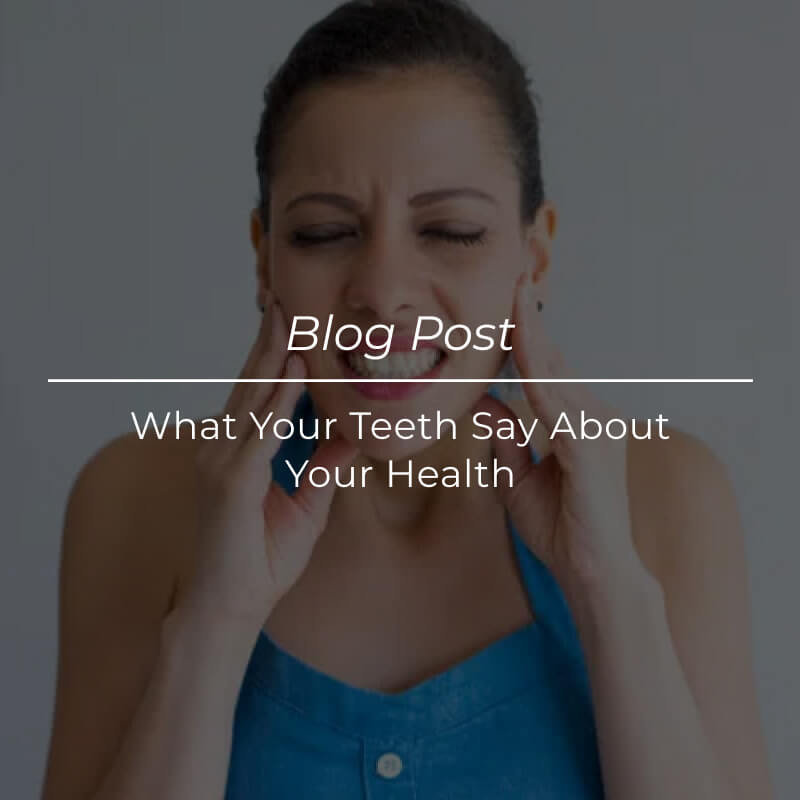-
Mon- Sat 08:00-18:00
-
Call Us Now 1300 99 1300

Do you know why government organisations and dental groups advocate proper dental care from childhood?
Does the lack of proper dental care affect only your oral health, or does it has far-reaching consequences?
To answer these questions, you should have a broader analysis and understanding of how oral health influences your body’s overall health. In reality, your dental health can improve or worsen your overall health and vice versa.
The state of your teeth can say a lot about your health. Before asking how to, let’s discuss some findings and studies that come to this conclusion. You should also know about holistic dentistry and the advantages and disadvantages of holistic dentistry to ensure better overall health through excellent oral health.
Your mouth contains a lot of bacteria – similar to other parts of your body. While many of them are harmless, you can control the harmful bacteria with proper oral care, such as daily brushing, flossing, regular dental visits, etc.
In the absence of proper dental care, these bacteria grow and threaten your oral health and lead to oral infections, such as gum disease and tooth decay. It means that a lack of proper dental care creates a direct and quick impact on your oral health.
Do you know that the uncontrolled growth of oral bacteria can spread to other areas of your body and lead to several chronic health conditions?
In addition to lack of dental care, some medications – especially painkillers, decongestants, diuretics, antihistamines, and antidepressants – reduce the saliva production inside the mouth.
Do you know that your saliva has anti-microbial and anti-inflammatory properties? It also washes out the food residues and acids produced by the microbes and keep your mouth clean. The low production of saliva can affect your oral health and prompt the growth of microbes.
Some of the major health issues that are influenced by oral health conditions or directly affect your dental health include the following:

Several studies have shown that the infections and inflammations in your mouth can lead to clogged arteries, heart disease, and stroke. The bacteria in your mouth can spread through the bloodstream and reach your heart and stick to its walls.
Diabetes is a condition that can risk your oral health and vice versa. Since diabetes can reduce the resistance of a patient’s body, it can lead to infections in their mouth or worsen the gum disease.
This is a major reason why people with diabetes often experience periodontal diseases. Similarly, people with gum disease find it difficult to control their blood sugar levels. It means that people who ensure good oral care can have better control over their blood sugar levels that reflect with improved diabetes conditions.
It’s a health condition in which the bones become weak and brittle. Some recent studies suggest that osteoporosis might be linked to tooth loss and periodontal bone loss. The drugs used for treating osteoporosis can affect the jawbones and damage them.
Some studies link periodontal issues with pregnancy complications. The hormonal changes in a pregnant woman can lead to oral infections, and this can only be prevented by good oral hygiene.
These oral infections can complicate the pregnancy and may lead to premature birth. Such infants will also have low birth weight. It means that gum disease can lead to severe health issues for both the mother and the baby.
People with HIV/AIDS often experience oral problems such as painful mucosal lesions. Also, HIV/AIDS leads to dry mouth with very little saliva, and that can worsen the oral health of the patients.
A study conducted by some scientists from the University of Central Lancashire in 2013 proved the presence of a bacterium named Porphyromonas gingivalis – associated with chronic gum disease – in the brains of dementia patients.
The bacteria enter the bloodstream of the patients through daily activities, such as brushing teeth, eating, chewing, and more. The study hints that the bacteria can also enter the bloodstream through the sutures of invasive dental treatments.
Researchers conclude that the bacteria enter the brain through the bloodstream, and each time they enter the bloodstream, it causes immune system responses. The responses lead to the release of chemicals that lead to the killing of neurons – the primary units of the central nervous system.
The activity leads to symptoms such as deteriorating memory and confusion.
A majority of these dental issues can be prevented by proper dental care and hygiene. Regular dental visits can help you to identify most of the dental issues in advance. It can also help you to take treatment early and avoid both your oral health and overall health getting worse.
To maintain your oral health, you can follow good oral hygiene that includes the following steps:
In addition to maintaining oral hygiene, it is also important to supplement the right nutrients for the development of your teeth and gums. There are healthy food choices and unhealthy options for your oral health. Let’s discuss the important points to remember while you eat and drink.

Holistic dentistry is a great way to ensure excellent oral health in the long term. It also ensures the overall wellness of a person through state-of-the-art approaches and education.
It encourages people to follow good dental hygiene through steps to care for their teeth and gums. Holistic dentistry defines that the teeth, mouth, jaws, and gums are inextricably connected to other body parts.
Do you know what is a holistic dentist does or what their role in the health of your overall body is?
Holistic dentists focus on balancing the entire body of the patient rather than treating specific dental conditions. These dentists also focus on cosmetic dental issues, including the alignment of bite, straightening crooked tooth, proper positioning for the jaw and facial bones.
Holistic dentists choose minimally invasive treatment procedures and biocompatible materials for treatments. The dentists use modern tools and hi-tech techniques to provide the best results to their patients. Importantly, patients get individual treatment solutions according to their specific needs while ensuring overall wellbeing.
Holistic dentists often work with general dentists or other specialists to provide comprehensive and lasting treatment solutions to their patients.
Holistic dentistry provides you great benefits in the following areas:
Since holistic dentistry is the smartest choice when it comes to long-term dental care, it has no significant disadvantages.
Holistic dentistry spreads the message of how an individual’s dental health is connected to their overall health and vice versa. It’s a positive way of life where you follow a healthy lifestyle and practices to control and prevent dental issues and thus the overall health issues.
Care Family Dental Toorak offers advanced holistic dentistry solutions by combining proven techniques and state-of-the-art tools with our team of experienced and qualified holistic dentists. Your search to find a holistic dentist in Melbourne can end at our doorstep as we offer a friendly, caring, healing environment under our roof.
You can call us on (03) 9999 3324 or reach out us online to discuss your dental issues with our holistic dentists. You can also access our online booking tool to book an appointment with us. We welcome you to receive a wholesome dental treatment experience from us.








